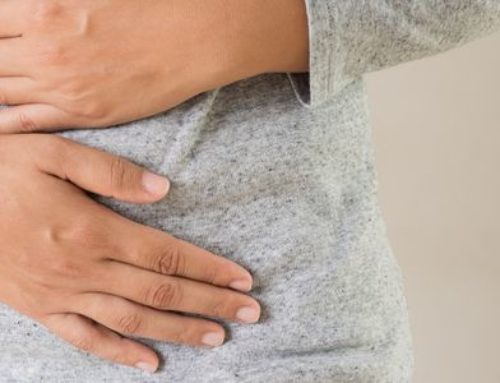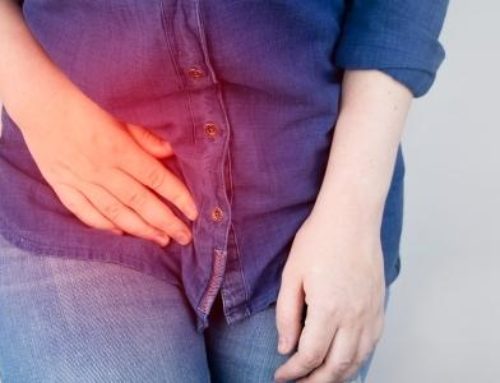
It’s estimated that Endometriosis effects 1 in 9 women in Australia, yet there’s still a lot that we don’t know about this common condition, particularly how it’s related to gut health.
Endometriosis (Endo) is characterised by lesions, or abnormal endometrial tissue, growing outside the uterus. Which, when you stop and think about it, is pretty incredible. Your uterus is producing heaps of extra tissue to prepare for pregnancy and putting it in places it shouldn’t be. Gee, thanks uterus…. NOT HELPFUL!
The effects of an over-excited uterus can include painful periods, ongoing and excessive abdominal pain, nausea, fatigue and fertility issues. On top of these unwanted symptoms, women with Endo are more likely to experience symptoms of IBS, which can make for a very unhappy abdomen.
As the scientific world learns more and more about endo, our microbiome (all the bacteria in our body) and gut health, researchers are finding some links between the three.
We’re all in this together
From an anatomical perspective, it makes sense that what’s going on in your small and large intestine, may influence the symptoms in your uterus and ovaries, and vice versa. They are sitting right next to one another after all. And when we have all that machinery crammed in together, it can sometimes be difficult to determine what’s causing what.
Your gastrointestinal (GI) tract pushes food and poo along the tube by using the muscles that line the tract. The muscles squeeze and release in a wave movement that’s called peristalsis (watch it on Youtube – SO COOL!)
In some cases, endometrial lesions around the uterus and bowel can cause excessive pain and discomfort as your GI tract squeezes food and poo along with this wave.
Equally, if you have a blockage in the large intestine due to constipation, or you have a buildup of gas in the large intestine, this can put pressure on the uterus and ovaries, exacerbating the pain and discomfort of endometriosis.
For some women, endometrial cells can even intrude into the bowel, which can cause inflammation, obstruction of the bowel and even micro-haemorrhages.
So, from this perspective, Endo and gut health are already closely linked purely due to their proximity, and managing GI symptoms could help manage Endo symptoms.
Gut microbes and oestrogen
Over the past few decades we have learnt more and more about the bacteria in our gut and the role that they play in our bowel health, immunity and brain health. Interestingly, the bacteria in our gut can also influence our hormones, including oestrogen. Because oestrogen contributes to the growth of endometrial tissue, there is an emerging theory that changes to our gut microbes may impact endometriosis.
Here’s how:
Within the gut, there is a collection of bacteria which are able to process oestrogen and modulate the body’s oestrogen levels. This group of bacteria is collectively called the estrobolome.
Oestrogen is made by the ovaries, adrenal glands and fat cells in the body, it then travels around our body in the bloodstream. Then it is metabolised and changed in the liver before being eliminated through our urine or the bile that’s being excreted in our poo.
Amazingly, the estrobolome bacteria can change these eliminated oestrogens back into their original shape, allowing them to be reabsorbed from the gut, back into the blood stream, thereby increasing oestrogen in the blood. SO COOL!
There are lots of things that might affect the balance of your estrobolome, including:
- Age
- Ethnicity
- Genetics
- Diet
- Alcohol
- Antibiotic use
Gut microbes and inflammation
There is some evidence to suggest that our bacteria (microbiome) contributes to, or is involved in, the regulation of inflammatory factors, which may influence endometrial lesion development.
Our bacteria break down a whole range of chemicals from our food including fibre and resistance starches. The bacteria then create by-products or metabolites, which are really a fancy way of saying ‘bacteria poo’. Our body absorbs the metabolites (bacteria poo) and then those chemicals effect our pathways of our immune system, particularly inflammatory markers. This can signal more or less inflammation, depending on the bacteria and the metabolite. (I know I sound like a broken record here but … SO COOL!!)
The exact pathway of how particular bacteria influence inflammation in endometriosis is not yet clear, but it’s an emerging area of research.
So, what do we do?
As you can see, there are lots of ways that endometriosis might be affected by gut health and vice versa. But, given this is all new and emerging knowledge, what do we do with it?
We can’t yet make recommendations on taking a particular probiotic or eating particular foods to help endo, but we can take steps to support our gut health and manage gut symptoms, which may help in the management of endometriosis.
Here’s how to support a healthy gut:
Fibre
Check out the articles below to learn more about fibre and how you can increase your fibre intake. Evidence suggests that we can all do with some extra fibre:
Water
H2O is essential for keeping everything moving through your gut. Reducing the risk of constipation helps to reduce pressure within your abdominal cavity, which can lessen the pressure on endometrial lesions and help to manage pain. Most adults need between 1.8 – 2.5 liters of water per day to do this.
Physical activity
Moving your body helps to stimulate the muscles of the bowel to push things through, which again helps with constipation. Any movement is good, but meeting the mark of 2.5 – 5 hours of moderate intensity movement a week is a great goal to aim for. It’s also helpful to minimise periods of prolonged sitting, if possible.
Sleep
There is growing evidence that the quality and duration of our sleep can affect gut bacteria. Getting more sleep in total supports a greater diversity of gut bacteria, and waking during the night appears to reduce this diversity. Who would have thought?!
Taking steps to improving quality of your sleep, may therefore have a positive impact on your gut and endo. Check in with your own sleep habits, are there things you can change to get a better night’s rest?
How to manage gut symptoms:
If you are suffering from IBS style symptoms in the context of endometriosis, the aim may be to minimise the impact of gut symptoms on your endo symptoms. These are some ways you can do it:
Investigate FODMAP’s
A FODMAP intolerance is a common contributor to IBS. FODMAP’s are fermentable carbohydrates that our bacteria feed off and produce LOTS of gas. This gas can cause bloating and changes to stool consistency, all of which create more pressure and discomfort in the abdomen, where you may have endometrial lesions. Trialling a low FODMAP elimination diet with a dietitian can help you better understand how to avoid triggering foods and feel better.
Find out more in What is a Low FODMAP Diet?
Muscle relaxants
There is some evidence that these herbal remedies may have an antispasmodic effect, meaning that they help to reduce the spasm of your gastrointestinal muscles, which is what causes cramping and pain:
- Peppermint Oil
- Ginger
- Chamomile
You can also enlist the help of antispasmodic medications. However, I would recommend speaking to your GP or a health professional before commencing a new medication, even an over the counter one.
Meet our specialist gut health Dietitian, Clare Wolski.



